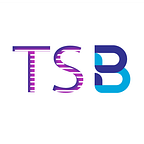Blockchain technology in the Defense sector (Part 70)
Welcome to the 70th part of the 100-part series on Blockchain.
The defense sector is a very critical and crucial sector for every country in this world. This sector is generally considered a resource-intensive sector, with many countries spending a substantial share of their GDP on this sector. The defense sector has always been a frontrunner in implementing the state of art technology solutions, and Blockchain is no different.
Blockchain as a communication platform
Blockchain, with its innate characteristics of security, auditability, accuracy, transparency, and data immutability, proves to be an excellent match for the defense industry, which involves a lot of complex processes, multiple stakeholders and requires the highest level of security for its data and communication channels.
The first and most basic requirement of the defense sector is to have a robust and secure communication platform. A platform that can help the agencies and defense officials to maintain the secrecy of the information shared and transmitted as per the protocols laid down. Blockchain can be a perfect solution for these requirements as it can provide a platform for secure and resilient communications in a highly contested environment. Effective information tracking and data source authentication are very crucial requirements of the defense sector. Military officials use this information to make important, sometimes even life-and-death decisions. With the implementation of Blockchain, they can make these decisions more confidently as it ensures data authenticity and data integrity. Time Stamped messages with their immutable audit trail, including the original source, makes them more trustworthy and reliable.
Further, Blockchain enables data inputs to be appended to a single, distributed ledger, thus reducing the risk of errors and simultaneously improving data reliability. US Military has partnered with a technology firm ITAMCO to develop a Blockchain-based secure messaging app. The app’s goal would be to provide a robust, efficient, and much more secure platform for the Department of Defence Communications. This secure messaging platform has several use cases inside the defense services, for example, for communication between the troops on the ground and the Headquarters or sending information between intelligence officials and the Pentagon.
Blockchain in defense supply chain
Complex supply chain is the next big challenge that bothers this industry consistently. The defense supply chain, like any other supply chain, requires transparency and traceability for its robustness. Blockchain, with its feature of immutability, provides an immutable trail of the products and goods moving through the supply chain. This is a great feature for this sector, as defense officials can now track and trace all the supply chain transactions across various departments and supplier partners. This in turn, saves a lot of time and makes the whole system more efficient.
Blockchain in Cyberdefense
Cyber defense is one of the most promising solutions that Blockchain can provide for this sector. The defense industry has constantly been trying to find a solution for the issue of Cyber attacks. Threats of data manipulation and hacking always keep the defense sector on its toes as these activities can lead to a breach of the critical data, which in turn, can leave the defense services of the whole country vulnerable. The security protocols and databases currently used by the defense sector need to be upgraded to fend off global cyber threats.
Blockchain technology provides a perfect solution for these requirements of the defense sector. In traditional systems, a complete network becomes vulnerable even if one data center is hacked into or disabled by the enemy. But with Blockchain and its decentralized ledger system, there is no single point of failure, and the enemy needs to take down all data centers and devices to disable the complete network.
Blockchain in Military Drone Operations
One more application of Blockchain technology is in Military Drone Operations. AI and Blockchain, coupled with drone technology, can be used for various applications in defense services. These drones powered by AI can fly independently without requiring any intervention from a human. Further, Blockchain technology can be used to record data collected by these drones in real-time and in an immutable ledger. Sometimes it becomes very difficult for humans to understand the data points used by AI systems to reach a particular decision. In such cases, Blockchain really helps to understand the decision made by the AI as the complete trail of the decision process will be recorded on the Blockchain.
So extending this concept to our AI-powered drones, Blockchain technology can be used to record the actions and flight decisions taken by the drone during its whole journey. Of course, the drone may get destroyed or attacked by the enemy, but the information it captured and recorded will still be available on the Blockchain.
Hence it won’t be incorrect if we assume that Blockchain technology is a natural match for the defense sector. The peculiar characteristics of immutability, transparency, and security that Blockchain provides have made it a perfect solution for solving many of the issues of the Defence industry.
Scalability concerns
(i) However, storing the entire data about the supply chain, AI, military drones, intelligence, etc., on Blockchain is very challenging as it is costly and will significantly slow down the processing on Blockchain. Thus, distributed file storage IPFS can provide low-cost off-chain storage to store data, and the hash of the uploaded file is then stored on the Blockchain and accessed through the smart contract. Any modification in the uploaded file would change its hash. IPFS has been explained in detail in Part 18.
(ii) To make the Blockchain scalable, layer 1 (discussed in Part 15) and layer 2 (discussed in Part 16) scaling solutions will be required to be implemented.
If you liked this article and want to know more about Blockchain, NFTs, Metaverse, and their applications, click the below link.
Happy learning!
